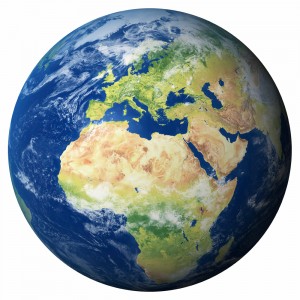In the South Pacific ocean lies three tiny atolls that go by the name of Tokelau. These islands have a population of around 1,500 people, around the size of a big village.
However, bad news is on the way for the people of Tokelau, as climate change is threatening every single one of the residents lives. Droughts are a real problem in the area, as despite being surrounded by sea water, there is very little freshwater that locals can use. Climate change means that rains are decreasing in the area, and drought is increasing.
The second issue for this tiny group of islands is the sea itself. Sea levels around the world are rising for two main reasons: ice caps are melting, and thermal expansion (when water gets hotter, it expands) – these are both caused by climate change, i.e. global warming of the planet.
The final issue for these tiny atolls is that they are made out of coral. Coral is a very delicate substance, that requires very specific conditions to grow and survive.
Basically, these islands are stuck between a rock and a hard place, and it doesn’t look like their situation is getting any better.
It is rather unfair of one to say that the use of fossil fuels on these islands is what has sealed their fate, as compared with the likes of China, the USA and the EU, the islands have virtually no greenhouse gas emission – they probably are responsible for less than 0.0001% of global emissions, leaving the rest of the world responsible for the other 99.9999%.
Despite this, Tokelau has announced that by September 2012, there will be no greenhouse gasses produced there at all, they will run 100% on renewable energy! Photovoltaic solar panels will make up 97% of their energy, whilst the rest will come from local coconut oil made into biodiesel. What is really amazing is that its per-capita income is only about $1,000 per year, a fraction of that in many western countries.
Why is Tokelau bothering though? Their fate is sealed, sea levels will rise further, drought will increase and coral will decline. However, this tiny group of islands believes that if they make a stand now, maybe, just maybe the rest of the world will follow.
The people of Tokelau will most likely be taken in by nearby neighbours, however their home islands will be lost forever, along with their natural beauty and potential. But that’s not the point.
I believe that Tokelau is a warning for what is to come for the rest of the earth. Climate change is happening and it’s real. If we carry on the way we are, we will almost surely destroy the planet we call home.
I have read predictions that by 2050 most of the worlds megacities and centres of economic and political power will be underwater. That includes the likes of London, California, the Netherlands and Bangladesh. That’s a lot of people who will be affected.
We need to take a stand now, for the sake of the future of planet earth.
Why not install solar on your roof? It could heat your hot water or power your electricity, even creating extra which you could sell back to the national grid! Why not have a small wind turbine set up in your back garden, that could do wonders for your energy bills!
Think about it. It is our world, we need to look after it.
From the bottom of my heart I ask that you think green, save resources and our home. We really are so lucky that in the whole of space, the perfect conditions came about so that our planet were ever to exist, with it’s vital magnetism and ozone layer, which helped to create and now sustains life.




